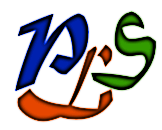In 1990, an issue of the journal Speculum (published by the Medieval Academy of America) was devoted to the so-called "New Philology". This is a trend in philology, at the beginning within Romance philology, that claimed to introduce a new vision of the mediaeval text in the wake of the 1989 pamphlet by Bernard Cerquiglini in which he pleaded for textual variance. In a nutshell, Cerquiglini claimed that critics should not try to reduce a mediaeval tradition to one single text, but rather let the variation coexist. Although Cerquiglini’s book attracted strong criticisms from the beginning (see Varvaro 1989, Stussi 1992, but also several articles in Busby 1993 and in Gleßgen/Lebsanft 1997), the “New Philology” recently found some new defenders, even outside of Romance philology (see Driscoll 2010, and for a neutral overview Yager 2010). It should be pointed out, however, that not all proponents of the “New Philology” are comfortable with the term, but prefer e.g. “material philology”, thus underlining the turn towards the sources themselves and typically a single manuscript within its historical context (cf. Nichols 1997). This is typically seen as a contrast to and a criticism of the reconstructive aspirations of traditional philology.
The "New Philology" is in practice identical to traditional philology when a work is preserved in a codex unicus – i.e. when there by definition is no variation at all. In these cases, an edition can do little more than rendering the source as it is. The facsimile editions of the early and mid 20th century are prime examples of traditional philology having done exactly what the new philology is asking for, presenting single manuscripts in their codicological and textual individuality.
However, the majority of works, classical as well as mediaeval, are preserved in more than one manuscript, and this is where the old and the new philology tend to part – the old heading towards reconstruction and explanation, the new towards acceptance and description of the variation. Haugen (2010) points out that many works are preserved in a highly fragmented state, and that it is only by way of traditional philology that it has been possible to reconstruct them (as far as it goes) on the basis of the manuscript material. This includes, for example, major works such as the Old Norwegian King’s Mirror (Konungs skuggsjá), and the translation from Old French into Old Norwegian of the lais of Marie de France, Strengleikar, both dating from the mid 13th century and both fragmented. There seem to be no tools in the chest of New Philology for dealing with this type of tradition.
References
– Busby, Keith, ed. 1993. Towards a Synthesis? Essays on the New Philology. Amsterdam: Rodopi.
– Cerquiglini, Bernard. 1989. Éloge de la variante. Paris: Seuil.
– Driscoll, Matthew J. 2010. “The Words on the Page: Thoughts on Philology, Old and New.” In Creating the Medieval Saga: Versions, Variability, and Editorial Interpretations of Old Norse Saga Literature, edited by Judy Quinn and Emily Lethbridge, 85–102. Odense: University Press of Southern Denmark.
– Gleßgen, Martin-Dietrich, and Franz Lebsanft, eds. 1997. Alte und neue Philologie. Tübingen: Max Niemeyer.
– Haugen, Odd Einar. 2010. “Stitching the Text Together: Documentary and Eclectic Editions in Old Norse Philology.” In Creating the Medieval Saga: Versions, Variability, and Editorial Interpretations of Old Norse Saga Literature, edited by Judy Quinn and Emily Lethbridge, 39–65. Odense: University Press of Southern Denmark.
– Nichols, Stephen G. et alii. 1990. The New Philology. Special issue of Speculum 65 (1).
– ———. 1997. “Why Material Philology? Some Thoughts.” Special issue of Zeitschrift für deutsche Philologie 116: 1–21.
– Stussi, Alfredo. 1992. Review of Cerquiglini 1989. Zeitschrift für romanische Philologie 108: 199–202.
– Varvaro, Alberto. 1989. Review of Cerquiglini 1989. Medioevo romanzo 14: 474–477.
– Yager, Susan. 2010. “New Philology.” In Handbook of Medieval Studies: Terms – Methods – Trends, edited by Albrecht Classen, 999–1006. Berlin: Walter de Gruyter.
In other languages
DE: new philology, neue Philologie
FR: nouvelle philologie
IT: new philology; not to be confused with Michele Barbi's "nuova filologia"
